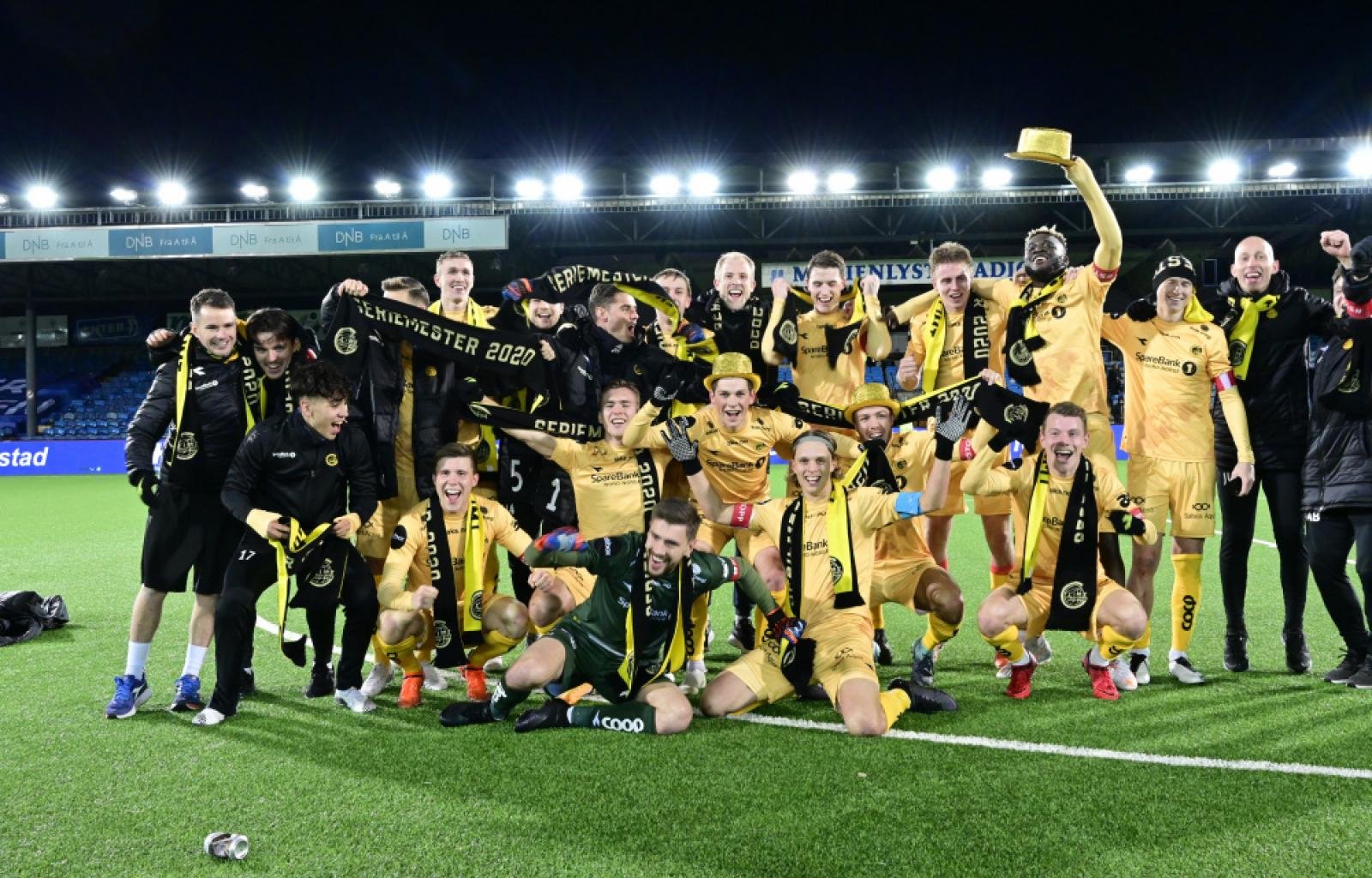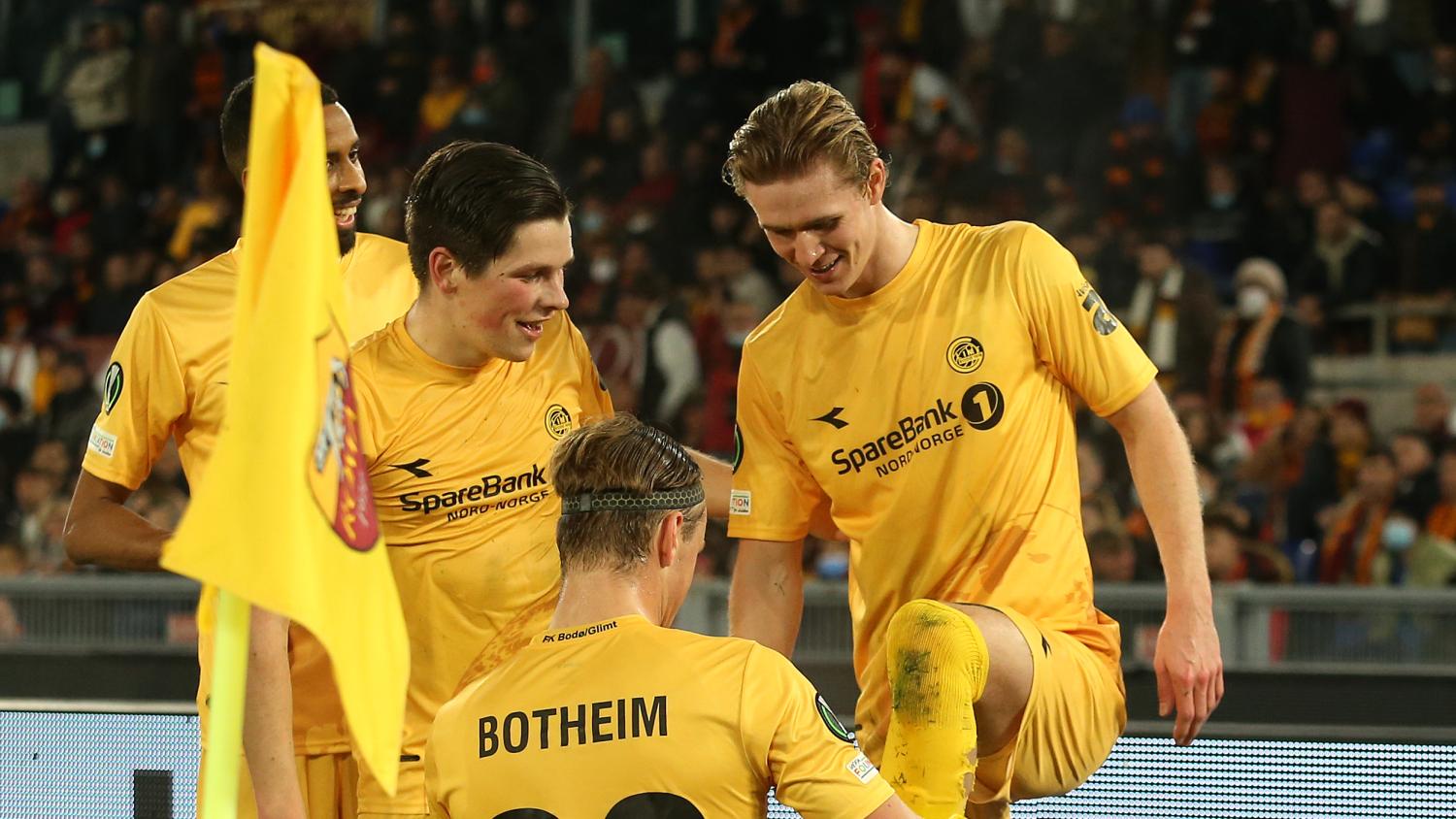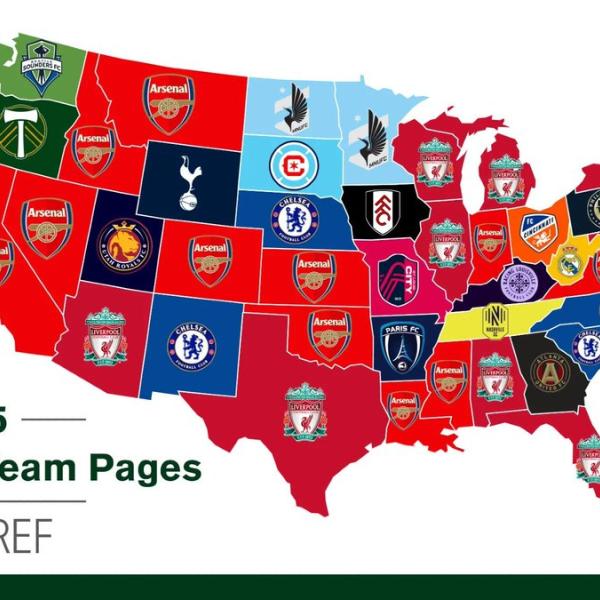José Mourinho was confident when he brought his Roma side to the Aspmyra Stadion for a UEFA Conference League match on Oct. 21. The Portuguese manager named a noticeably second-rate squad for the trip to the Arctic Circle to face reigning Eliteserien (Norwegian top-flight) champion FK Bodø/Glimt.
Mourinho recognized the fact that Glimt had lost just once in its previous 26 matches and was once again leading the league, but the Roma boss still predicted a good result for his side: "It’s a good team that plays great football," Mourinho said of Glimt before the match. "They have four points so far, and it’s hard to happen. We’ve reviewed them carefully, so we don’t expect any big surprises."
Bodø/Glimt had faced Serie A competition before, putting up a fight against AC Milan in 20-21 Europa League qualifying before falling 3-2. But the talented front three from that Glimt team all moved on to bigger clubs.
Yet after the 90 minutes were up at the Aspmyra Stadion, even the staunchest fans from the Norwegian town of Bodø were stunned by the scoreline.
It read 6-1 in favor of Bodø/Glimt.
The hosts went up 2-0 in the first 20 minutes before putting Roma away with four more goals in a masterful second half. The last team to beat Roma by at least five goals in European competition? Barcelona in 2015-16.
Roma's squad value is nearly 30 times more than that of Glimt, but the yellow shirts of Glimt could have easily represented the fourth-place team in Serie A and not an obscure Norwegian side.
Glimt (which fittingly means "lightning" in Norwegian) played attractive passing football and simply carved Roma apart.
Mourinho was critical of his players — especially his backline — after the match, saying: "Among you, there are people who would not even play here in Norway, or even in Serie B." In reality, it was he who underestimated a side that is quickly becoming one of the most exciting clubs in Europe.
When the sides met a few weeks later in Rome, Mourinho didn't start his "B" side. And there was no artificial turf or frigid temperatures. Still, the Norwegian side impressed, twice taking the lead before settling for a 2-2 draw at the Stadio Olimpico.
Mourinho again shifted the blame elsewhere, saying: "You can talk about whatever you want, but the reality is 2-2, they had two shots on target and two goals. We scored two goals and had two clear penalties denied."
Until recently, Glimt was a "yo-yo" club, perennially oscillating between the first and second tier. But Glimt set Eliteserien records in 2020 for goals scored (103) and points (81), losing just once in 30 matches en route to winning its first-ever top-flight title.
So how did a club that is 90 miles north of the Arctic Circle become the dominant force in Norwegian football and then transfer that success over to UEFA competitions?
It started with an uncommonly talented batch of homegrown players.
"Half the first team are local boys,” youth academy coach Orjan Berg said. “We aim to have 40 percent of our squad from northern Norway, and 15 percent of playing minutes for local players. That is part of our identity. The fans want northern Norwegians to play."
Three players in the current Norway international side play for Glimt, while two former Glimt products have appeared for the national team in the past year. The most talented of this core group is winger Jens Petter Hauge.
As a 17-year-old in 2017, Hauge had a league-high 12 assists in Glimt's promotion-winning season. It took him a few years to adjust to the top flight, but Hauge broke through in 2020, with 14 assists and 10 goals in just 18 matches.
Hauge was flanked by a pair of Danes in Philip Zinckernagel (19 goals, 18 assists) and Kasper Junker (27 goals, 8 assists), with this exceptional front three leading the way during Glimt's title-winning campaign.
Tactically, Glimt plays an expansive brand of attacking football rarely seen in the Eliteserien, which has been described as "kamikaze" football and the "Scandanavian Atalanta."
Glimt is a possession-based side that loves to attack with pace. The Lightning led the league with 61 percent possession in 2020, using their width to open up passing lanes and create overloads.
Holding midfielder Patrick Berg is the focal point, drawing comparisons to Rúben Neves by situating himself as a deep-lying playmaker. Berg works as a pivot to keep the ball while also cleaning up messes defensively and, of course, creating attacking chances with the occasional long ball.
In the final third, Glimt plays a lot like Guardiola's Manchester City, with the front five playing high and the fullbacks pushing up and in to become holding midfielders. The Lightning also made almost twice as many attacking runs as any other team in the Eliteserien last year, using their fitness to open up spaces in attacking areas.
As evidenced by the highlights from the first Roma match, the focus is always on finding the free man, using quick passes and off-the-ball movement to create these overloads and fashion goal-scoring opportunities.
Having some pretty good finishers helps too, as Glimt's front three alone outscored all but two sides in the Eliteserien.
Defensively, the side's willingness to make endless off-the-ball runs is also seen in its demanding counter-pressing. The Lightning press high and look to regain possession quickly, another Man City staple.

Bodø/Glimt attacking phase formation. Via Coach Hall's Blog on Substack
It's not just technical ability and tactical prowess that have made Glimt an elite side, it is the work of the club's mental coach — Bjørn Mannsverk — that has created an environment for success that is unique in the sporting world.
Mannsverk is a former fighter pilot in the Norwegian Air Force, who since 2017 has worked as Bodø/Glimt's mental coach. Although he once found football as "boring," Mannsverk uses mental training and wellness exercises he learned in the military to help the players get in the proper mindset for competition.
Mannsverk's methods include meditation, one-on-one sessions and group meetings, as well as individual "homework" assignments for players to reflect on their experiences and visualize their tasks.
For the former air force pilot, these men are more than just players, they are people — and their mental well-being impacts how well they perform on the pitch.
"We have a very open culture,” club captain Ulrik Saltnes said. “We say things to our coach that, at other clubs, might be taken as a sign of weakness."
These candid conversations create a healthy environment where a close-knit side sees itself as a family.
On the pitch, this mental preparation reflects the club's overarching message: performance over results.
"Focusing on results generates a lot of stress,” Mannsverk says. “Focusing on performance is a really creative process."
Most teams like to set specific goals before the season for league and cup performance, while individuals often establish stat-based targets for themselves — such as goals scored for a striker or shutouts for a goalkeeper.
After finishing 11th in the Eliteserien in 2018 — just three points above the relegation zone — the club entered the 2019 campaign with a different approach.
"We did away with all of that stuff,” Saltnes said. “We did not have any ambitions. We just wanted to focus on performance."
"We are really, really precise about what our focus should be," midfielder Patrick Berg said. "And when you have that focus, you don’t think about consequences and what could happen. You actually focus on your tasks as a football player — and that personally for me takes away a lot of the pressure that is coming from the outside."
On the surface, it's a very mechanical approach: Every player is a cog in the big yellow machine that must perform specific tasks for the team to succeed. But this simplified mindset removes the stress of results and lets the players play the way they know how to play.
This philosophy helped Glimt — a team tabbed for relegation — finish second in the league, tied for its best top-flight finish ever. From there, the Lightning only grew in confidence.
Despite having the youngest squad in the league, Glimt put up a historic performance in 2020 to win the Elitserien by a full 19 points — shattering just about every league record along the way.

Just some northern boys celebrating a historic league title. Via The Sweeper on Twitter.
The success was met with robust enthusiasm from local fans who have waited their whole lives for success. And although Covid-19 restrictions prevented supporters (known as "The Yellow Horde" for bringing giant yellow toothbrushes to matches) from entering the stadium, this resulted in plenty of creative match-viewing options.
According to the New York Times: "One group of fans hired a cherry picker, parked it outside the stadium, climbed into its basket and then extended its hydraulic arm until they could see the field."
But then again perhaps nothing should come as a surprise at a club as special as Bodø/Glimt (Glimt being Norwegian for flash) where supporters bring novelty sized toothbrushes to matches as a running joke since the 70’s and at time boasted a giant salmon in their stadium. pic.twitter.com/EcJ9eVzryt
— COPA90 (@Copa90) November 21, 2020
While the league title was profoundly celebrated, it was just another breakthrough for a club that now faces another set of challenges.
"I think if you start focusing on results and titles, you’d be quite happy when you win the Norwegian league, and you might think, ‘Okay, what else can we do?’," Berg said. "When we’re focused on performance instead of results, we never want to stop."
Glimt is tasked with defending its Norwegian title while also participating in European competition — both of which it must do without its front three from 2020.
After a goal and an assist in the club's narrow defeat to AC Milan in Europa League qualifying in the fall of 2020, Hauge earned a $5 million move to Milan the following month, departing the club shortly before its league title was confirmed.
Before the start of the 2021 season, Glimt also lost its other two exceptional attackers, with Zinckernagel moving to Watford on a free transfer and Junker leaving for a J-League payday in Japan.
This year's squad is less prolific on the attack (averaging one fewer goal per game than last year), but makes up for it with the stoutest defense in the division. The Lightning currently have a five-point lead over second-place Molde with four matches remaining and the league crown in sight.
The Lightning's recent draw against Roma also kept Glimt at the top of its Europa Conference League group with two fixtures left.
"Personally, my hope is that we dare to be ourselves, and we dare to play our football," Berg says. "Even if we meet teams that are supposed to be better than us, I think going into Europe and suddenly starting to play in a different way, that’s not us.
"And I don’t think that’s the way to go about it. I would be extremely disappointed if we go out in the qualifying stages feeling that we could have done more. My hopes are just that we give it our all and see how far it takes us."
For Glimt, each season, each match is another challenge to surmount. And whether they face a trip to Rome or a home match against lowly Mjøndalen IF there is one goal: play good football; play Glimt football.
Before Glimt's title-winning campaign in 2020, no Northern Norwegian team had ever taken home the Elitserien crown. By proxy, Glimt's league crown was a victory for the entire region.
Teams from Northern Norway were even not permitted to compete in the top flight until 1971, as authorities thought the clubs would not be competitive and travel distances would be too large. Bodø/Glimt helped end this geographic discrimination by winning the Norwegian Football Cup in 1975 and then earning promotion to the Elitserien the following year.
"It makes people proud that we, a little club from the north of Norway with fewer resources than other clubs, can compete on that level," Frode Thomassen, chief executive of Bodø/Glimt said.
“They thought we were primitives up here,” Bodø/Glimt’s sporting director Aasmund Bjørkan asserted after his club clinched the league title last November. “We were direct, we spoke our minds, but we were not primitive. They thought that we were only farmers, fishermen. Some still think that we are."
After a pair of masterclass performances against Roma, it's hard to believe that many people will be overlooking Bodø/Glimt for long.






